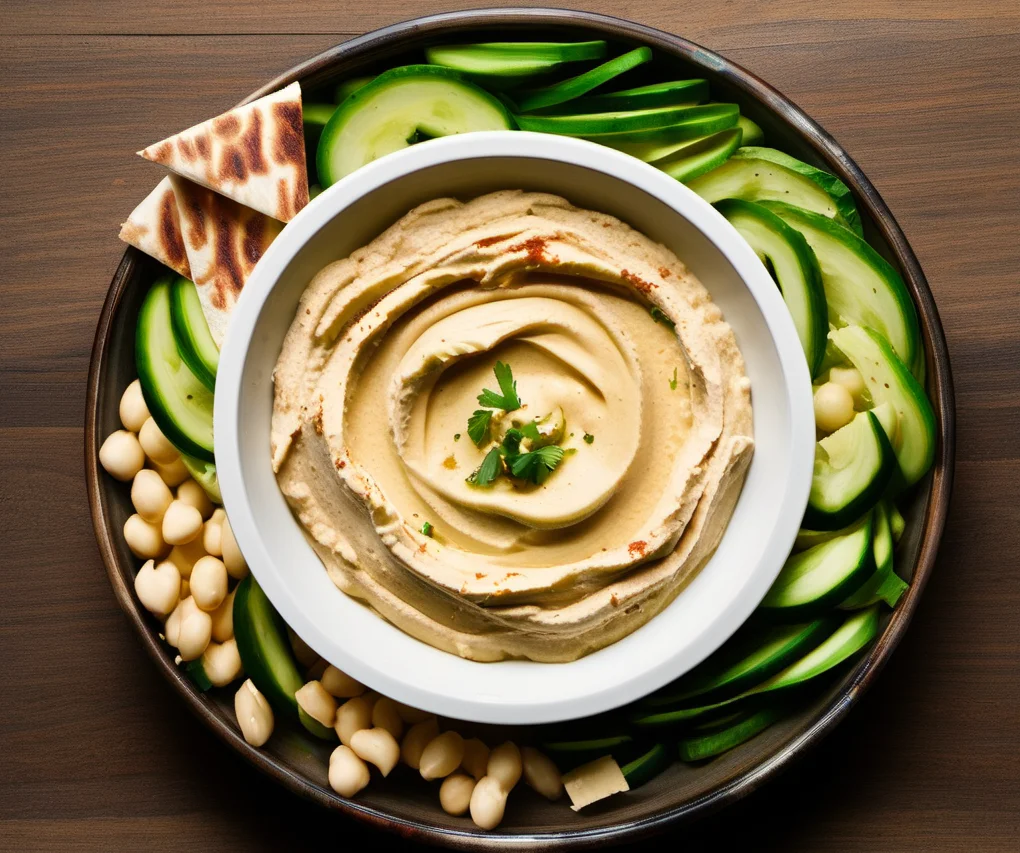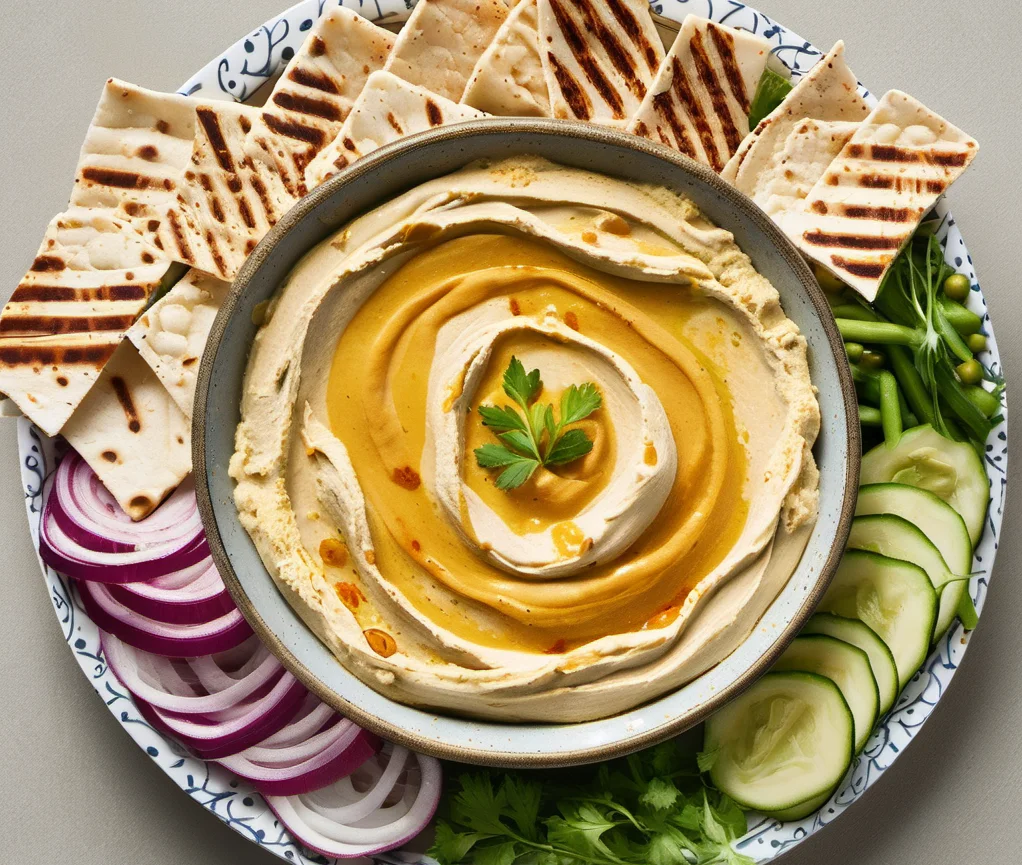In this post you will learn a homemade Hummus recipe. Healthy Hummus, a creamy dip made from cooked chickpeas, tahini (sesame paste), olive oil, lemon juice, and garlic, has gained immense popularity worldwide as a versatile and flavorful addition to any meal. Its roots trace back to the Middle East, particularly Lebanon, Palestine, and Jordan, where it has been a culinary staple for centuries. Homemade Hummus Recipe is cherished for its creamy texture, nutty flavor, and ability to complement a wide range of dishes, from sandwiches and wraps to salads and mezze platters.
Nutritionally, hummus is a powerhouse, packed with plant-based protein, fiber, healthy fats, and essential vitamins and minerals like folate, iron, and vitamin E. Its combination of ingredients offers numerous health benefits, including improved digestion, heart health, and blood sugar regulation, making it a beloved choice for health-conscious consumers around the globe.
| We have gathered Flavorful Mediterranean Salad Recipes. click here to Learn them. |
Hummus Ingredients
- 1 cup cooked chickpeas
- 2 small lemons
- 2 tbsp tahini(seasame paste)
- 3 tbsp olive oil
- 1 clove garlic
- Salt, black pepper, paprika
- Half cup chickpea juice
Preparation Steps for Homemade Hummus Recipe
- Blend all ingredients until smooth. Adjust seasoning to taste.
- Garnish homemade Hummus with olive oil, paprika, and chickpeas.

| Learn how to make Homemade Mediterranean Pita Bread. |
Nutritional Information of Hummus
Typically, 100 grams of hummus provides the following approximate nutritional values:
| Compounds | Nutritional Value |
| Energy | 43 kilocalories |
| Carbohydrates | 20.1 grams |
| Dietary Fiber | 4 grams |
| Protein | 4.9 grams |
| Vitamin A | 5 micrograms |
| Folic Acid | 59 micrograms |
| Vitamin C | 8 milligrams |
| Calcium | 49 milligrams |
| Iron | 1.56 milligrams |
| Magnesium | 29 milligrams |
| Phosphorus | 110 milligrams |
| Sodium | 242 milligrams |
| Potassium | 861 milligrams |
Please note that these values are approximate and may vary depending on the specific product and preparation method. For more accurate Nutritional Information of Hummus, refer to the product label or trusted nutritional sources.
Health Benefits of Hummus
Hummus is a valuable source of plant-based protein, making it an ideal choice for vegetarians and vegans to support muscle strength and tissue repair. Its high fiber and healthy fat content promote digestive health, alleviate constipation, and reduce the risk of intestinal issues. Rich in iron, hummus aids in hemoglobin production and can benefit individuals with iron deficiency anemia.
Additionally, the antioxidants, phytochemicals, and unsaturated fats found in hummus contribute to cardiovascular health by reducing the risk of heart disease and regulating blood pressure. With its low glycemic index, hummus is suitable for diabetic individuals, aiding in blood sugar control and preventing type 2 diabetes. Moreover, tahini, a key ingredient in hummus, enhances satiety, regulates blood glucose levels, and supports weight management by reducing belly fat.
Furthermore, hummus is a rich source of essential minerals like calcium, phosphorus, and magnesium, promoting bone health and preventing osteoporosis.
Incorporating Hummus into Your Diet: Hummus, owing to its fiber and protein content, is a beneficial addition to various diets. Its satiating properties help control appetite and stabilize blood sugar levels. However, for optimal results, it’s advisable to balance hummus consumption with a diverse range of nutritious foods, consider total calorie intake, and consult with a dietitian to determine individual dietary needs.




[…] Read and learn another Homemade Hummus Recipe. […]